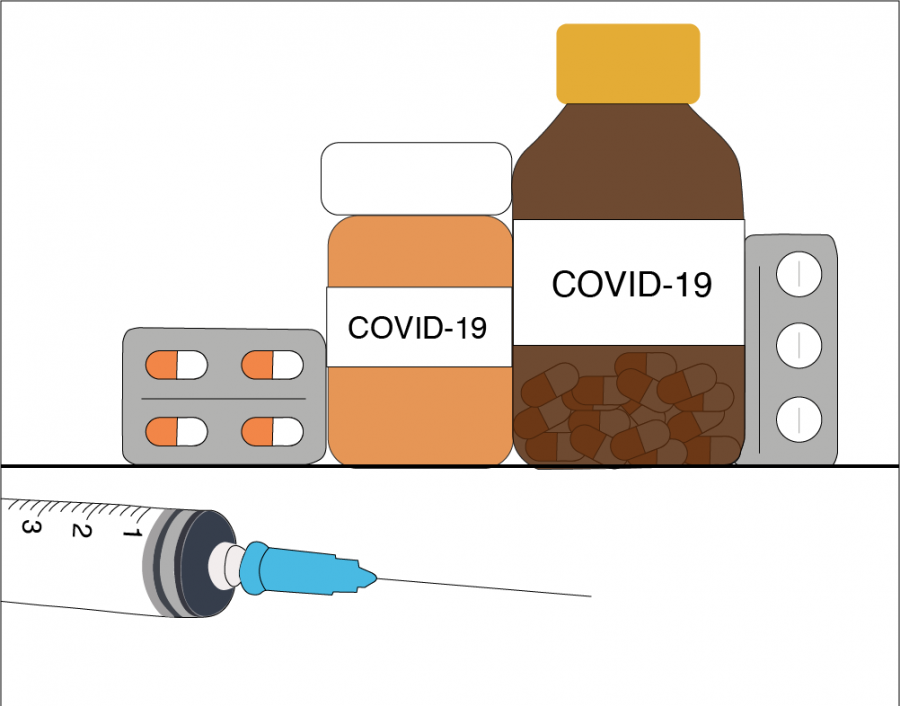Medical Professionals Investigate Possible COVID-19 Treatments
Scientists are conducting several studies to discover possible treatments to coronavirus, as well as ways to prevent its spread.
The spread of COVID-19 has become uncontrollable across the globe, and action needs to be taken immediately to slow the spread of the virus. Scientists are conducting several studies to discover possible treatments to coronavirus, as well as ways to prevent its spread. Doctors have taken the plasma of COVID-19 patients who recovered from the virus and used the results as treatments for the pandemic. With that being said, many treatments to prevent coronavirus’s spread will not be available on pharmacy shelves for a minimum of a few months, if not longer.
For the time being, physicians have proposed using blood plasma of patients who recovered quickly from the virus to protect medical workers and help infected patients. The logic behind this idea is that this blood from former COVID-19 patients contains antibodies against coronavirus, which will increase the likelihood of recovering from the virus. The goal of plasma treatment is to temporarily relieve the medical world. It was announced by Governor Andrew Cuomo that New York will start using this treatment on patients. Essentially, after tests are developed to take the plasma richest in antibodies, patients will have an increased chance of recovering from the disease, and people at risk of developing the disease will have a means of prevention. This is not a long-term solution; it is just here for the time being until a vaccine is developed.
Many drugs are being tested to determine their efficacy in improving the outcomes of COVID-19 patients, such as Chloroquine, Hydroxychloroquine, Kaletra, and other antiviral drugs.
Chloroquine is a drug that is approved to treat malaria patients and has been shown to slow the efficiency of the virus. Trial results have shown that the drug has decreased the replication of the Novel Coronavirus and that it is effective against other respiratory viruses such as SARS.
Hydroxychloroquine is approved to treat autoimmune diseases and it has been found to disrupt cell communication, slowing the spread of the Novel Coronavirus. So far, scientists seem to be receiving negative feedback from the early drug trials, however, more trial results should be out shortly that will give a better indication of the potential benefit.
Kaletra, a drug approved to fight HIV, prevents proteins from being reproduced in HIV, which is also the hope for Coronavirus. Nonetheless, there have not been any significant results proving its effectiveness thus far.
While it is imperative that a treatment or vaccine is developed, the novel treatments will likely take the greater part of a year and will not be fast enough to help the currently expected apex of cases within the next month. Many doctors recommend that everyone keeps over-the-counter drugs in their homes, such as fever-lowering medicines and painkillers like Tylenol, that have been found to help reduce the COVID-19 symptoms.
It would be ideal to have treatments available as soon as possible to stop COVID-19’s spread, so we could assimilate back into normal society. This disease is especially threatening to elders and those with compromised immune systems and has taken the lives of nearly thirty thousand people globally with over three thousand in the US. All of this could be changed with the introduction of a treatment, and medical professionals and scientists are diligently working to find effective treatments.
In the meantime, the shortage of ventilators is the biggest concern globally and in the US the number of units required to treat the expected peak caseload is far too low. New York State believes it needs nearly 40 thousand ventilators to manage the expected surge in cases in the next few weeks despite currently having dramatically fewer units on hand. A coordinated effort is being made to manufacture surge capacity and avoid the sad reality in Northern Italy where physicians have been forced to choose which patients to put on a ventilator and which patients not to treat and give a greater probability of dying.


